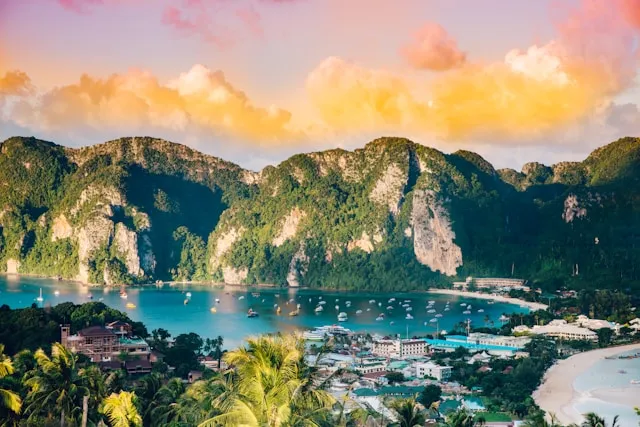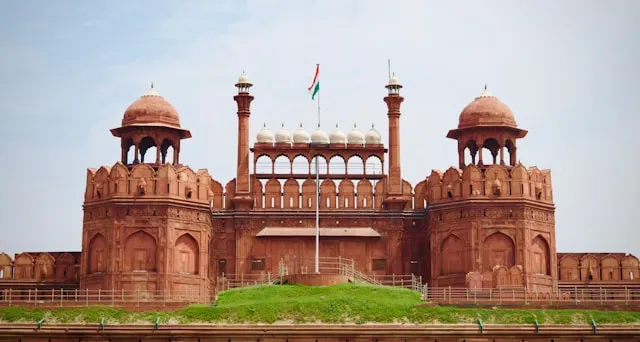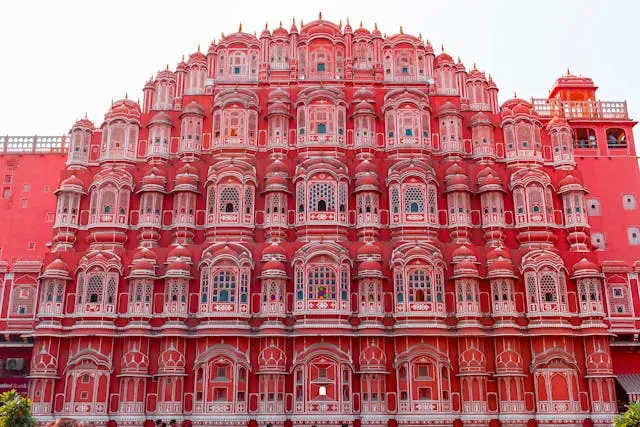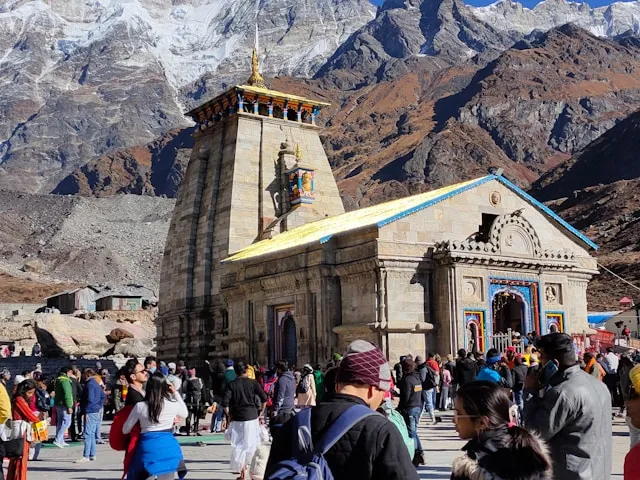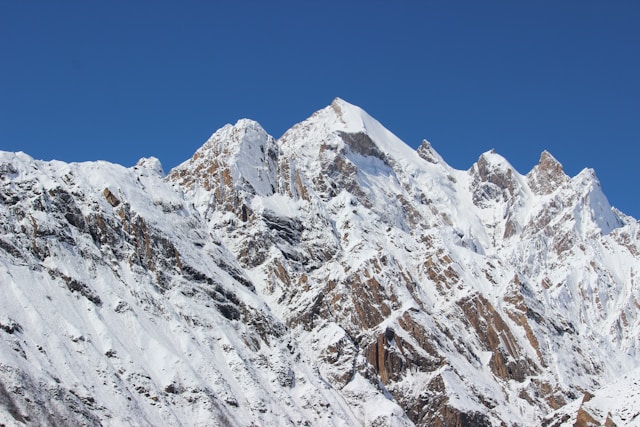South India Travel Guide
South India
About South India Travel Guide
Destination Overview in South India
South India, known for its rich cultural heritage, lush landscapes, and historic temples, offers a diverse travel experience. Comprising the states of Tamil Nadu, Karnataka, Kerala, Andhra Pradesh, and Telangana, this region is famous for its classical arts, scenic backwaters, ancient architecture, and vibrant festivals. From the serene beaches of Kerala to the magnificent palaces of Mysore, South India blends tradition with natural beauty, making it a favorite destination for travelers seeking spirituality, history, and nature.
Top Attractions & Places to Visit in South India
- Historical & Architectural Sites: Meenakshi Temple (Madurai), Brihadeeswarar Temple (Thanjavur), Mysore Palace, Hampi Ruins
- Natural Wonders: Kerala Backwaters, Coorg Coffee Plantations, Ooty and Kodaikanal Hill Stations, Nagarhole National Park
- Cultural & Spiritual Hubs: Rameswaram, Tirupati Balaji Temple, Srirangam Temple, Chidambaram Nataraja Temple
- Beaches: Kovalam, Marina Beach (Chennai), Varkala, Gokarna
- Markets & Bazaars: Commercial Street (Bangalore), Pondy Bazaar (Chennai), MG Road (Kochi)
Best Time to Visit South India
Best months: October to March offer pleasant weather ideal for sightseeing and outdoor activities. Summers can be hot and humid, while the monsoon season (June to September) brings heavy rainfall, especially along the coast.
How to Reach South India
Air:
Major international airports include Chennai International Airport, Bengaluru International Airport, Cochin International Airport, and Hyderabad Rajiv Gandhi International Airport.
Rail:
Extensive railway network connects major cities and tourist destinations.
Road:
Well-developed highways and bus services provide easy connectivity within the region.
Local Transport:
Auto-rickshaws, taxis, app-based cabs, and buses are widely available for local travel.
Accessibility for Differently-Abled Travelers in South India
Many modern hotels and attractions have improved accessibility, but some heritage sites may have limited facilities. Public transport is gradually becoming more accessible.
Things to Do & Experiences in South India
Explore ancient temples and attend traditional festivals
Cruise the tranquil Kerala backwaters in houseboats
Trek in Western Ghats hill stations like Munnar and Coorg
Experience classical dance and music performances
Sample diverse South Indian cuisine including dosas, idlis, and seafood
Shop for silk sarees, spices, and handicrafts
Accommodation Options in South India
South India offers everything from luxury resorts and heritage hotels to budget guesthouses and homestays. Popular areas include Chennai, Mysore, Cochin, and Hyderabad.
Local Cuisine & Dining in South India
Famous for its flavorful and varied dishes, South Indian cuisine features staples like dosa, idli, sambhar, and filter coffee. Seafood is prominent in coastal areas, while traditional thalis offer wholesome meals.
Travel Tips & Safety in South India
Stay hydrated and protect yourself from heat in summer
Dress modestly, especially when visiting temples and religious sites
Use official transport options and avoid unlicensed taxis
Keep copies of important documents and emergency contacts handy
Weather Details & Packing Suggestions in South India
Winters (Oct-Mar): Light woolens for hill stations; cotton clothes for plains
Summers (Apr-Jun): Light, breathable clothing and sun protection
Monsoon (Jun-Sep): Rain gear recommended, especially near the coast
Currency Exchange & Banking Facilities in South India
ATMs and currency exchange services are widely available in cities and tourist hubs.
Connectivity & SIM Card Info in South India
Major telecom providers like Airtel, Jio, and Vodafone offer excellent coverage. SIM cards can be purchased at airports and retail outlets with valid ID. WiFi is commonly available in hotels and cafes.
Itinerary Suggestions in South India
3-Days: Explore Chennai temples and Marina Beach.
7-Days: Add Mysore Palace, Coorg plantations, and Ooty hill station.
10-Days: Include Kerala backwaters, Alleppey houseboat, and temples of Madurai and Rameswaram.
Nearby Destinations to Explore from South India
Goa – 1-2 hour flight
Sri Lanka – 1-hour flight from Chennai or Bengaluru
Andaman Islands – 2-hour flight from Chennai or Kolkata
Shopping & Souvenirs in South India
Buy silk sarees, sandalwood products, spices, handicrafts, and traditional jewelry from local markets and bazaars.
Cultural & Historical Background of South India
South India’s history spans ancient Dravidian kingdoms, powerful empires like the Cholas and Vijayanagara, and rich temple architecture. The culture is deeply rooted in spirituality, classical arts, and traditional festivals.
Best Transport Options in South India
Auto-rickshaws and app-based cabs are common for city travel. Intercity buses and trains provide comfortable connectivity.
Nearest Railway Station or Airport in South India
Major airports: Chennai, Bengaluru, Cochin, Hyderabad
Major railway stations: Chennai Central, Bengaluru City, Cochin, Hyderabad
FAQs About South India
Is South India safe for solo travelers?
Yes, with standard travel precautions, South India is safe and welcoming.
What is the best time to visit South India?
October to March offers the most comfortable weather.
Do I need a visa to visit South India?
Visa requirements depend on nationality; standard Indian visas apply.
Which languages are spoken in South India?
Tamil, Telugu, Kannada, Malayalam, and English are widely spoken.
Is the food safe to eat?
Yes, but take usual precautions with street food.
How can I get around the cities?
Auto-rickshaws, taxis, and app-based cabs are widely available.
Are ATMs easily available?
Yes, especially in urban centers and tourist destinations.
What should I pack?
Light clothing for the plains, warm layers for hill stations, and rain gear during monsoons.
Can I use my international SIM card?
Local SIM cards are recommended for better coverage and rates.
Are there any cultural customs to keep in mind?
Respect religious practices and dress modestly in temples and sacred places.
Sustainability & Responsible Tourism in South India
South India encourages responsible tourism through conservation of natural resources and heritage sites. Visitors are urged to minimize waste, respect local culture, and support community-based tourism initiatives.
Need a South India Travel Guide Customized Itinerary?
Let us create your perfect South India Travel Guide journey

Gallery

Weather
Location Map
South India
Latest Blog Posts
Latest News: South India Tour Packages | South India Travel Guide | Top Destinations, Culture & Travel Tips
What Our Travelers Say
Real experiences from our valued customers
"A visit to the Somnath temple was the highlight of my India trip. The experience was flawless, from start to finish."
Lily Johnson (Los Angeles, USA)
"The Kedarnath Yatra was a divine experience. Everything was arranged smoothly, making the journey peaceful and memorable. Highly recommend!"
Ravi Patel (Ahmedabad, India)
"The Char Dham package was spiritually fulfilling. Every detail was well planned. A once-in-a-lifetime experience!"
Neelam Agarwal (Delhi, India)
"The Dwaraka pilgrimage was a beautiful experience. The arrangements were top-notch and every moment felt special."
Nisha Verma (Delhi, India)
"The trip to Amritsar was life-changing. The team did an amazing job at organizing everything. The Golden Temple is magical."
Victor Martinez (Madrid, Spain)
"The Kailash Yatra is something I’ll never forget. The holy mountain radiated peace, and the journey was spiritually fulfilling. The entire process was seamless and well-handled by the team."

